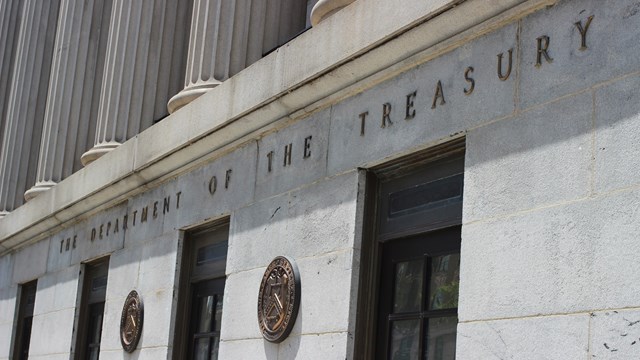There are new faces, a new two-year session, a new governor and a new General Assembly speaker in Trenton, and these changes may have repercussions for homeowner reforms, housing legislation and other quality-of-life issues.
From CEO to Governor
The new governor is Democrat Jon Corzine, the wealthy, high-powered former CEO of investment powerhouse Goldman Sachs and a former U.S. Senator from New Jersey (and who reportedly once contemplated buying the New Jersey Nets in partnership with Charles Kushner before Brooklyn's Bruce Ratner got a hold of them.)
Corzine is not a native New Jerseyan—in fact, he grew up on a farm in rural Illinois and was educated at the University of Illinois at Urbana-Champaign and later the University of Chicago. After working for several large banking firms in the Chicagoland area, Corzine and his family made the move to New Jersey, where Corzine worked as a bond trader for Goldman Sachs. By 1994, Corzine was the chairman and CEO of the company—and had acquired a taste for politics.
In 1999, Corzine left the world of finance for the world of government. He was elected to the Senate in 2000 after waging the most expensive Senate campaign in U.S. history—Corzine spent nearly $63 million, half of which was spent on just the primary.
During his Senatorial stint, Corzine sat on the Banking, Intelligence, Budget, and Energy committees, and was a strong supporter of gun control, improved healthcare for low-income families and children, corporate accountability, as well as U.S. aid to third-world hotspots like Darfur, Sudan.
In 2005, Corzine made his bid for the governorship and amidst the instability in the wake of Governor Jim McGreevey's abrupt departure from office, won the election with 54 percent of the vote against Republican Doug Forrester. Since taking office, Corzine has promised to clean up the state's political patronage process and improve New Jersey's financial outlook. With a view to the latter, Corzine has submitted an overhauled state budget that reflects a number of proposals—some popular, some much less so.
Among the items on the new budget are spending cuts for state-sponsored programs, an increased state sales tax, and higher taxes on items such as cigarettes. The proposed $30.9 billion budget includes $2.5 billion in spending cuts and constrained growth. "New Jersey's state finances need to get back onto a sound long-term footing, consistent with the values of our people and I am determined to deliver that end through our final budget," Corzine said in his budget address. "The continuous use of the state's charge card to pay current operating expenses and stuffing bills into the desk drawers covering up our crises are over."
A New Speaker
The new Assembly speaker is Joseph J. Roberts Jr., who replaces outgoing Speaker Albio Sires. Roberts is a Democrat from Brooklawn who has served in the Assembly since 1987, and prior to that was House Majority Leader. Roberts is known to be an advocate for bipartisanship—he told the new legislature that Democrats and Republicans need to stop quarreling and work together on important issues.
Among the many bills sponsored by Roberts for the 2006-2007 legislative session are the following:
A148: Requires residential mortgage lenders to provide debtors with contact information in certain notices, and include copies of notices to court in certain foreclosure actions.
A256: Authorizes DEP and New Jersey Environmental Infrastructure Trust to provide loans to residential homeowners for water supply connections.
More New Faces
There are also 12 new legislators in the General Assembly: nine Democrats and three Republicans—the Senate is not up for re-election. The dozen newly elected assembly members are as follows:
Assemblyman Nelson T. Albano (D) of Millville.An electrician by trade, Albano currently sits on the Agriculture and Natural Resources Committee, and is vice-chair of the Law and Public Safety Committee.
Assemblywoman Jennifer Beck (R) of Morganville.Before joining the General Assembly, Beck was vice president of QualCare, Inc., and served on the Red Bank Borough Council from 1999 to 2005. She currently sits on the Higher Education and Transportation and Public Works Committees, as well as the Joint Committee on Public Schools.
Assemblyman Charles T. Epps, Jr. (D) of Jersey City.The former superintendent of Schools for Jersey City, Epps now sits on the General Assembly's Environment and Solid Waste and Health and Senior Services Committees.
Assemblyman Thomas P. Giblin (D) of Clifton.Giblin was a labor union officer for Local 68 Operating Engineers, served the Essex County Democratic Committee from 1993 to 2002, and was Commissioner of the New Jersey Real Estate Commission from 1979 to 1982. Currently, he sits on the Higher Education and Transportation and Public Works Committees.
Assemblywoman Amy H. Handlin (R) of Belford.Handlin is an Associate Professor of Marketing at Monmouth University, and served on the Monmouth County Board of Freeholders from 1990 to 2005. She now sits on the Commerce and Economic Development and State Government Committees.
Assemblywoman Valerie Vainieri Huttle (D) of Teaneck.A former funeral director, Huttle serves on the Bergen County Board of Freeholders, and chaired the group in 2003/04. She currently serves on the Appropriations and Human Services Committees.
Assemblywoman Marcia A. Karrow (R) of Flemington.A full-time legislator, Karrow was Director of the Hunterdon County Board of Freeholders from 2000 to 2004, and was Mayor of Raritan Township. Today, she serves on the Agriculture and Natural Resources and Appropriations Committees.
Assemblywoman Pamela R. Lampitt (D) of Voorhees.Coming from her former position as General Manager for Conference Services at the University of Pennsylvania, Lampitt is now the vice-chair of the Higher Education Committee and sits on the Commerce and Economic Development Committee.
Assemblyman Paul D. Moriarty (D) of Blackwood.In addition to serving on the Consumer Affairs and Tourism and Gaming Committees, Moriarty is currently the mayor of Washington Township in Glouster County.
Assemblyman Gary S. Schaer (D) of Passaic.An investment consultant and vice president at Ryan Beck & Company, Schaer is also a former Passaic City Councilman and was commissioner of the Passaic Housing Authority from 1992 to 1996. He now is vice-chair of the State Government and Budget Committees.
Assemblywoman Oadline D. Truitt (D) of Irvington.In addition to serving as a school librarian and a member of Newark's Rent Control Board, Truitt also is a member of the General Assembly's Education Committee.
Assemblyman Jim Whelan (D) of Northfield.Whelan, a former schoolteacher, mayor of Atlantic City, and Atlantic City Councilman, is now vice-chair of the state's Tourism and Gaming Committee, and serves on the Higher Education Committee.
Legislature 101
Legislators are elected from 40 districts of equal population, and the voters in each district elect one senator and two members of the General Assembly. Unlike some other states, some members of the New Jersey Legislature also hold municipal office. For example, Sharpe James, the longtime mayor of Newark, who leaves office as of July 1st, is also a senator. Members of the Assembly serve two-year terms, while senators serve four year-terms. The Assembly elects the Speaker from among its members, while the Senate elects a President.
Bills are introduced, go through committee, and—if they can be passed by both houses—end up on the governor's desk.
Through this legislative process, the legislature has the power to significantly impact housing issues, although much also depends on the governor—since he must ultimately sign any legislation—and because the departments and agencies under him propose and enforce regulations. Legislators propose bills and resolutions on affordable housing, zoning, property valuation and tenants' rights, among other issues. Legislative action led to the creation of the Council on Affordable Housing, and the State Rental Assistance Program, to name two programs.
Hot-Button Items
Here are some of the high-profile issues that the Legislature has been studying:
Affordable Housing:As of the time this article was being written, budget negotiations were beginning. According to Sara Ryan, spokeswoman for the majority Democrats in the Senate, affordable housing groups are asking for $50 million but the governor has recommended $10 million in funding.
Bill Guhl, spokesman for the Republicans in the Senate, agrees, saying that "Affordable housing is always an important issue in New Jersey," but officials look to property tax reform to make housing more affordable.
A search of current bills with the keyword "affordable housing" on the state Legislature's website (www.njleg. state.nj.us) turns up 11 bills, with subjects ranging from "Senior Citizen Affordable Housing" to a proposal to establish a Joint Committee on Affordable Housing to "Affordable Housing in the Highlands Region." As we've mentioned, the state has an official Council on Affordable Housing, under the aegis of the Department of Community Affairs.
Property Tax Reform:New Jerseyans are some of the most heavily taxed citizens in the country. According to Susan Swords, senior coordinator for the Legislative Information and Bill Room, there are 158 bills addressing the broad topics of property taxes and property tax reform.
Among the proposals are one for a special session of the Legislature to consider property tax reform, one for extending veterans' property tax exemption to tenant shareholders in cooperatives, one for convening a state constitutional convention to provide property tax relief and reform, one authorizing exemptions for façade renovations in certain older municipalities, one giving a property tax credit to volunteer firefighters' primary residences, and one to increase the annual property tax deduction for seniors and the disabled.
Ryan says long-term solutions to the problem of property tax reform are a big issue. Guhl, likewise says, "Republicans, who proposed a comprehensive property tax reform initiative last year that would have cut property taxes by 30 percent in three years, are continuing to call for a special session to deal solely with property tax reform." Both agree that because the proposed budget (at press time) had less money for municipalities, towns could have to raise property taxes by seven or eight percent.
Homeowners' Associations:Several bills have been introduced in the current session dealing with this topic, according to Joyce W. Murray, lead counsel for the Office of Legislative Services.
Among them are bills to establish certification of property managers of common interest communities (A476, sponsored by Bateman); to authorize common interest community associations and homeowners to utilize the State Office of Consumer Protection for dispute resolution (A2030, sponsored by Dancer/Malone/S945, sponsored by Singer); A2822 (Scalera), permitting the association to charge a fee for a capital contribution to defray common expenses; and several others.
UCIOA Legislation:UCIOA stands for Uniform Common Interest Ownership Act, a product of the National Conference of commissioners on Uniform State Laws. The purpose of UCIOA is manifold. The act aims to update concepts and statutes to include all forms of common-interest communities, not just condos; to grant authority to associations to impose fines and late charges against unit owners; to enable developers and unit owners to address and remedy construction defect and warranty claims; to allow developers more flexibility in the planning process, and more.
The UCIOA bill was introduced in this session as A798 (Caraballo/Biondi) and S805 (Doria/Asselta). This bill was approved by the General Assembly 55-14-6, and as of press time was awaiting consideration in the Senate.
Another bill, the Turner-Rice Bill (S1608), the "Owners' Rights in Common Interest Development Act," is intended to codify several court decision favorable to homeowners living in community associations, according to Murray. This bill will likely have to be reconciled with the UCIOA bill in the Senate, according to Kathleen Crotty, executive director for the Senate Democratic Office.
Where the Speaker Stands
Proposed Homeowner Reform Bills: Speaker Roberts voted in favor of the New Jersey UCIOA bill A798. In addition, according to his spokesman, Joseph Donnelly, Roberts supported measures to encourage residential developments at former brownfield sites and give municipalities new tools to combat abandoned properties.
Affordable Housing:Also according to Donnelly, Speaker Roberts helped one advocate for affordable housing, Assemblyman Jerry Green, become chair of the Assembly Housing and Local Government Committee; and promoted another—attorney William Castner Jr.—to the position of executive director of the Assembly Majority Office.
Property Tax Reform:Speaker Roberts has said that property tax reform should be the primary focus of the Legislature, and advocates a "Citizens' Convention" that would empower residents to fix the property tax system.
"Not only did he lead the charge against fiscal policies that set the foundation for the budget deficits and rising property taxes New Jersey faces today, he has long crusaded for cost saving reorganization/share services policies," says Donnelly.
The Legislature holds the purse strings while the governor has the power of the veto to overturn legislative action. But by and large, each branch of government tends to work together so that bills are passed and the well-being of the state is maintained. In other words, there are firm boundaries, and each branch respects the other.
Raanan Geberer is a freelance writer living in New York City.







Leave a Comment